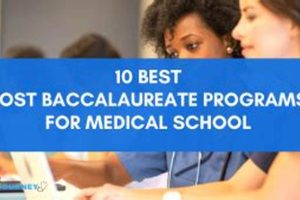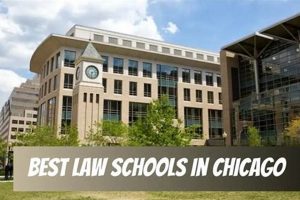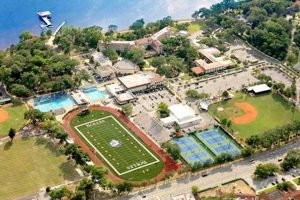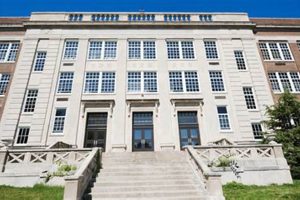Productive pre-medical experiences during a gap year can significantly strengthen a medical school application and provide valuable insights into the healthcare profession. These experiences can range from clinical roles offering direct patient interaction to research positions contributing to scientific advancement, and other opportunities that demonstrate key skills like teamwork, communication, and problem-solving. Examples include scribing, working as an emergency medical technician (EMT), conducting laboratory research, or volunteering in underserved communities.
A well-planned gap year allows aspiring physicians to mature, gain practical skills, and explore different facets of healthcare before committing to the demanding journey of medical school. This period can provide evidence of commitment to medicine, enhance an applicant’s personal narrative, and offer a much-needed break from the rigors of academic study. Historically, gap years have been less common for medical school applicants in some regions, but their value is increasingly recognized as competition for medical school intensifies and the need for well-rounded applicants grows.
The following sections will explore various enriching opportunities available to pre-med students during a gap year, considering factors like financial feasibility, skill development, and relevance to a career in medicine. Specific examples and resources will be provided to assist individuals in making informed decisions regarding their pre-medical pathway.
Tips for a Productive Pre-Medical Gap Year
Maximizing a gap year before medical school requires careful planning and consideration of various factors, including desired skill development, career exploration, and personal growth. The following tips offer guidance for prospective medical students.
Tip 1: Prioritize Clinical Experience. Direct patient interaction through roles such as scribing, certified nursing assistant (CNA), or EMT work offers invaluable exposure to the realities of healthcare. These experiences provide opportunities to develop empathy, communication skills, and a deeper understanding of patient care.
Tip 2: Engage in Research. Contributing to scientific inquiry through laboratory or clinical research demonstrates intellectual curiosity and a commitment to advancing medical knowledge. Seek opportunities that align with specific areas of interest within medicine.
Tip 3: Consider Volunteering in Underserved Communities. Serving vulnerable populations provides a unique perspective on healthcare disparities and strengthens a commitment to social responsibility, a crucial aspect of medical professionalism.
Tip 4: Develop Essential Skills. Focus on cultivating skills like teamwork, communication, problem-solving, and critical thinking. These skills are essential for success in medical school and beyond. Opportunities might include tutoring, teaching, or project management roles.
Tip 5: Reflect and Refine Career Goals. A gap year allows for introspection and the opportunity to solidify career aspirations. Engage in self-assessment to ensure that medicine aligns with personal values and long-term goals.
Tip 6: Seek Mentorship. Connect with physicians or medical students to gain insights into the profession and receive guidance on navigating the application process. Mentorship can provide invaluable support and perspective.
Tip 7: Plan Ahead and Secure Positions Early. Many competitive gap year experiences require advance planning and applications. Begin researching and applying for positions well in advance of the intended gap year.
By strategically utilizing a gap year, prospective medical students can significantly enhance their applications, gain valuable experience, and embark on their medical journey with a greater sense of purpose and preparedness. These experiences demonstrate maturity, commitment, and a genuine interest in the medical profession, contributing to a well-rounded application.
The concluding section will summarize the key benefits of a well-planned gap year and offer final recommendations for aspiring physicians.
1. Clinical Experience
Clinical experience forms a cornerstone of successful gap year planning for prospective medical students. Direct exposure to patient care and the healthcare environment provides invaluable insights that significantly strengthen medical school applications. This experience demonstrates a genuine commitment to the medical profession beyond academic study, offering a practical understanding of the daily realities faced by physicians and other healthcare professionals. Examples include scribing, where one assists physicians with documentation and patient interactions, or working as a certified nursing assistant (CNA), providing direct patient care under the supervision of nurses. These roles offer firsthand observation of patient interactions, medical procedures, and the dynamics of a healthcare team. Such experiences can solidify career aspirations and provide valuable context for future medical studies.
The impact of clinical experience extends beyond simply bolstering an application. It fosters empathy, improves communication skills, and cultivates a deeper understanding of the complexities of patient care. Working alongside healthcare professionals provides opportunities to observe ethical decision-making in real-world scenarios and to develop a nuanced perspective on the challenges and rewards of a medical career. For example, witnessing the emotional toll of serious illness on patients and their families can instill a greater sense of compassion and underscore the importance of patient-centered care. These lessons are difficult to glean from textbooks and offer a unique advantage to applicants with clinical experience.
In summary, prioritizing clinical experience during a gap year provides a crucial foundation for a successful medical career. This hands-on involvement translates into a more compelling application, demonstrating genuine commitment and providing a deeper appreciation for the human aspect of medicine. The lessons learned through direct patient interaction shape not only future physicians but also contribute to a more empathetic and patient-centered approach to healthcare.
2. Research Opportunities
Research opportunities represent a valuable component of a productive pre-medical gap year. Engaging in research demonstrates intellectual curiosity, analytical skills, and a commitment to advancing medical knowledge. These experiences provide opportunities to contribute meaningfully to scientific inquiry, developing critical thinking and problem-solving abilities highly valued in medical school applicants. Working alongside established researchers offers exposure to the scientific method, data analysis techniques, and the complexities of experimental design. Furthermore, research experience can help aspiring physicians identify specific areas of interest within medicine, informing future specialization choices. For example, a student interested in cardiology might seek a research position in a cardiovascular laboratory, gaining valuable exposure to the field and potentially contributing to published research. Such experiences offer a competitive edge in the medical school application process.
The benefits of research experience extend beyond the application process. Participation in research cultivates essential skills applicable throughout a medical career, including critical appraisal of scientific literature, data interpretation, and the ability to formulate research questions. These skills are fundamental for evidence-based medical practice and contribute to lifelong learning. Moreover, research experience can lead to co-authorship on publications or presentations at scientific conferences, further enhancing a candidate’s profile. For instance, presenting research findings at a national conference demonstrates communication skills and a deep understanding of the subject matter, qualities highly sought after by medical school admissions committees. Such experiences provide tangible evidence of a commitment to scientific inquiry and a dedication to advancing medical knowledge.
In summary, incorporating research opportunities into a gap year provides substantial benefits for prospective medical students. These experiences not only strengthen medical school applications but also cultivate essential skills for a successful medical career. Active participation in research demonstrates intellectual curiosity, analytical abilities, and a dedication to advancing the field of medicine, distinguishing candidates and contributing to a more well-rounded and competitive application.
3. Community Engagement
Community engagement serves as a vital component of a well-rounded gap year experience for prospective medical students. Meaningful involvement in community health initiatives demonstrates a commitment to social responsibility, a core value of the medical profession. Such experiences provide opportunities to address healthcare disparities, understand the social determinants of health, and develop cultural competencyessential attributes for future physicians. Volunteering at free clinics, assisting with health education programs, or working with underserved populations provides valuable insights into the challenges faced by vulnerable communities and fosters empathy for patients from diverse backgrounds. For instance, working with a homeless population might expose an individual to the complex interplay of mental health, substance abuse, and lack of access to healthcare, enriching their understanding of patient needs beyond a clinical setting.
The practical significance of community engagement extends beyond demonstrating altruism. These experiences cultivate essential skills highly valued in medical professionals, including communication, teamwork, and problem-solving. Navigating complex social situations, collaborating with diverse community members, and addressing real-world health challenges enhance adaptability and resourcefulness. Furthermore, sustained involvement in a community health project demonstrates commitment and initiative, qualities sought after by medical school admissions committees. For example, developing and implementing a health education program for a specific community demonstrates leadership, organizational skills, and a proactive approach to addressing health concerns. Such experiences showcase an individual’s capacity to contribute meaningfully to the health and well-being of a community.
In summary, incorporating community engagement into a gap year offers significant benefits for prospective medical students. These experiences not only strengthen applications by showcasing social responsibility but also foster essential skills and provide valuable insights into the social determinants of health. Active involvement in community health initiatives contributes to a more comprehensive understanding of healthcare challenges, cultivates compassion, and prepares future physicians to serve diverse populations effectively. Such experiences ultimately contribute to a more empathetic and socially conscious medical workforce dedicated to addressing the complex healthcare needs of all communities.
4. Skill Development
Skill development forms a critical component of optimizing a gap year before medical school. Strategic pursuit of experiences that cultivate essential skills strengthens a medical school application and lays a solid foundation for future success in the demanding field of medicine. Key skills sought by admissions committees and crucial for thriving in a medical environment include teamwork, communication, leadership, problem-solving, and adaptability. Gap year experiences offer unique opportunities to hone these skills in practical settings outside the traditional academic environment. For example, working as an emergency medical technician (EMT) requires effective teamwork under pressure, rapid problem-solving in critical situations, and clear communication with patients, families, and other healthcare professionals. Similarly, leadership roles in volunteer organizations or community projects can demonstrate organizational skills, initiative, and the ability to motivate others.
The practical significance of skill development during a gap year extends beyond impressing admissions committees. These honed skills translate directly into improved performance in medical school and contribute to a more effective and well-rounded physician. Strong communication skills are essential for patient interaction, building rapport, and conveying complex medical information clearly and empathetically. Effective teamwork is crucial for collaborating with colleagues in a fast-paced, high-stakes environment. Problem-solving abilities are constantly tested in diagnosing illnesses, developing treatment plans, and managing complex medical cases. A gap year dedicated to cultivating these skills equips aspiring physicians with the practical tools necessary to navigate the challenges of medical training and excel in their future careers. For example, a student who spent their gap year working as a medical scribe, honing their communication and observation skills, will be better prepared to interact with patients and document clinical findings accurately and efficiently during their clinical rotations in medical school.
In summary, prioritizing skill development during a gap year is a strategic investment in future success as a physician. By actively seeking opportunities to cultivate essential skills like teamwork, communication, leadership, and problem-solving, prospective medical students not only strengthen their applications but also prepare themselves for the rigors of medical school and the demands of a medical career. These experiences offer tangible evidence of commitment, maturity, and the practical abilities necessary to thrive in the complex and ever-evolving world of healthcare. This focus on practical skill development ultimately contributes to a more competent, adaptable, and well-prepared physician workforce.
5. Personal Growth
Personal growth experiences during a gap year offer valuable opportunities for self-discovery and maturation, complementing the professional development gained through clinical or research positions. These experiences enhance a medical school application by demonstrating adaptability, resilience, and a broader perspective, contributing to a well-rounded and compelling candidate profile. Such growth fosters self-awareness, strengthens personal values, and solidifies career aspirations, ultimately leading to a more mature and prepared medical student.
- Self-Discovery and Reflection
Gap years provide dedicated time for self-assessment and exploration of personal values. Activities such as travel, volunteering abroad, or engaging in creative pursuits allow individuals to step outside their comfort zones, encounter diverse perspectives, and gain a deeper understanding of their strengths and weaknesses. This period of reflection can clarify career goals and solidify the decision to pursue medicine. For example, volunteering in a medical clinic abroad might expose an individual to resource limitations and cultural differences, challenging pre-conceived notions about healthcare delivery and reinforcing a commitment to serving others. These experiences foster a deeper understanding of oneself and contribute to a more mature and informed career decision.
- Resilience and Adaptability
Navigating unfamiliar environments and overcoming challenges during a gap year cultivate resilience and adaptability, crucial attributes for success in the demanding field of medicine. Experiences like backpacking through Southeast Asia or working on a farm require individuals to adapt to new situations, solve unexpected problems, and persevere through setbacks. These experiences demonstrate resourcefulness and the ability to thrive outside one’s comfort zone, valuable qualities in a medical student facing the rigors of medical training. Overcoming these challenges builds confidence and reinforces the ability to handle stress and adapt to changing circumstances, essential skills for navigating the unpredictable nature of a medical career.
- Enhanced Perspective and Empathy
Exposure to diverse cultures and perspectives during a gap year broadens an individual’s worldview and cultivates empathy, essential qualities for effective patient care. Experiences like teaching English in a foreign country or working with refugees expose individuals to different lifestyles, belief systems, and healthcare challenges. This broadened perspective fosters cultural sensitivity, enhances communication skills, and cultivates a deeper understanding of the social determinants of health. These experiences contribute to a more empathetic and culturally competent physician, better equipped to understand and address the diverse needs of patients from all backgrounds. For example, working with individuals from different socioeconomic backgrounds can illuminate the impact of social factors on health outcomes, enriching a future physicians understanding of patient needs beyond the clinical presentation.
- Reinforced Commitment to Medicine
While not directly related to specific job roles, pursuing personal interests and passions during a gap year can indirectly strengthen a medical school application. Engaging in activities that bring joy and fulfillment, whether it’s learning a new language, pursuing artistic endeavors, or mastering a musical instrument, demonstrates a well-rounded personality and a capacity for self-directed learning. These pursuits can indirectly contribute to a stronger application by showcasing time management skills, discipline, and a commitment to personal growth. Furthermore, maintaining a healthy work-life balance during a gap year is crucial for preventing burnout and entering medical school with renewed energy and enthusiasm. Pursuing personal interests allows individuals to recharge and return to their academic pursuits with a greater sense of purpose and focus.
These facets of personal growth, cultivated through diverse gap year experiences, contribute significantly to a more compelling medical school application. They demonstrate maturity, resilience, and a broader perspective, differentiating candidates and showcasing a commitment to personal and professional development. Ultimately, these experiences contribute to a more well-rounded, empathetic, and resilient physician better equipped to navigate the challenges and rewards of a medical career.
Frequently Asked Questions
Addressing common inquiries regarding pre-medical gap year experiences can provide clarity and assist in informed decision-making.
Question 1: How does a gap year enhance a medical school application?
Meaningful gap year experiences demonstrate maturity, commitment to medicine, and a broader skill set, strengthening an application’s competitiveness. Practical experiences provide valuable context for academic studies and demonstrate a genuine interest in the medical profession beyond theoretical knowledge.
Question 2: What types of experiences are most valuable during a gap year?
Clinical experiences, research opportunities, community engagement, and skill-building activities are all highly valued. The most beneficial experiences align with individual interests and career goals while demonstrating key qualities sought by medical schools.
Question 3: Is a gap year required for medical school admission?
A gap year is not typically required for admission but can significantly enhance an application. The decision to take a gap year should be based on individual circumstances and the desire to gain specific experiences or skills prior to medical school.
Question 4: How can one finance a gap year?
Numerous paid positions, such as scribing or working as a clinical research assistant, can fund a gap year. Scholarships, grants, and personal savings can also be utilized to support gap year activities.
Question 5: How much time should be dedicated to gap year activities?
A productive gap year generally involves a significant time commitment. While the specific duration can vary, dedicating a substantial portion of the year to meaningful experiences typically yields the greatest benefits.
Question 6: When should one begin planning for a gap year?
Early planning is essential. Researching opportunities, securing positions, and arranging logistics often requires several months of preparation. Ideally, planning should commence at least a year in advance of the intended gap year.
Careful consideration of these frequently asked questions can assist prospective medical students in making informed decisions and planning a productive and enriching gap year experience.
The following section will offer concluding thoughts and recommendations for maximizing the benefits of a pre-medical gap year.
Conclusion
Strategic planning is essential for maximizing the benefits of a gap year before medical school. Carefully chosen experiences in clinical settings, research laboratories, or community organizations enhance an applicant’s profile and provide valuable skills and insights. These opportunities demonstrate a commitment to medicine, cultivate essential skills, and offer a deeper understanding of the healthcare landscape. A well-planned gap year differentiates candidates, strengthens applications, and contributes to a more well-rounded and prepared future physician. The insights and skills gained during this period serve as a foundation for success in medical school and beyond.
A thoughtfully executed gap year represents an investment in one’s future as a physician. The experiences gained translate into a more competitive application, a more resilient individual, and ultimately, a more compassionate and effective healthcare professional. Prospective medical students are encouraged to approach this period strategically, seeking opportunities that align with their individual goals and contribute meaningfully to their journey towards a career in medicine. The impact of a well-planned gap year extends beyond the application process, shaping the trajectory of a medical career and contributing to the development of well-rounded, empathetic, and highly skilled physicians.







